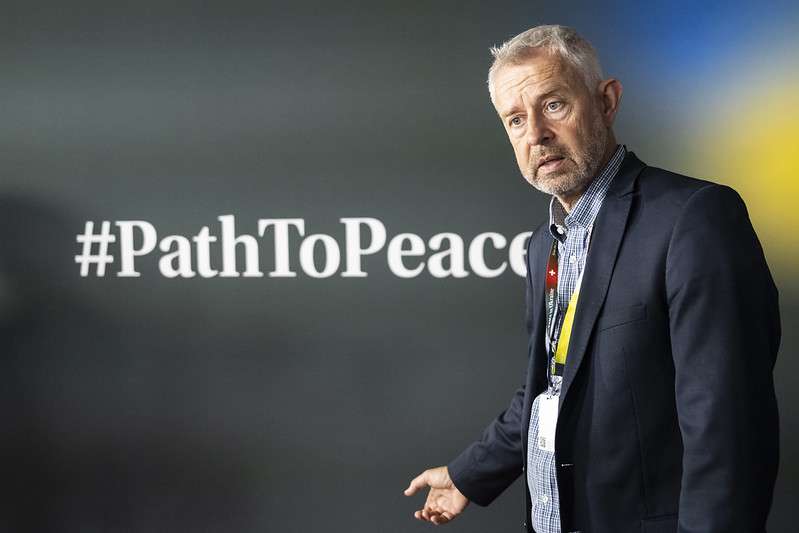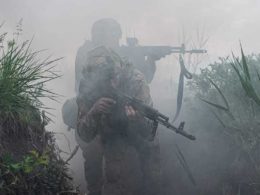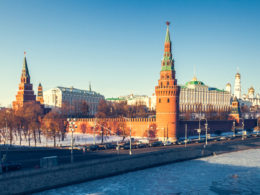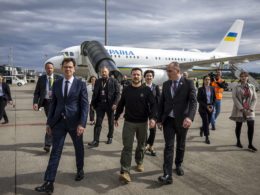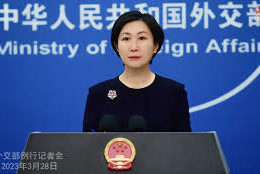Switzerland has amended the final communiqué of the ongoing Global Peace Summit after the previous draft was criticized for omitting key issues and potentially undermining Ukraine's interests.
The revised document now explicitly acknowledges Russia's aggression against Ukraine and emphasizes respect for the territorial integrity and sovereignty of all states, according to European Pravda.
The changes to the final document of the Global Peace Summit, which takes place on 14-15 June 2024 in Burgenstock, Switzerland, come as a relief to Ukraine and its allies, who had expressed concerns that the original draft could have opened the door to undesirable consequences, such as the international community pressuring Ukraine to relinquish part of its territory in exchange for peace with Russia.
The revisions help ensure that the summit remains focused on supporting Ukraine's efforts to repel Russian aggression and restore its borders to those recognized in 1991.
On 28 May, Bern sent a compromise version of the summit's final communiqué to all participating countries, which had previously been discussed with Kyiv representatives. However, a leaked draft indicated that this communiqué undermined the very idea of Ukraine's peace formula: it legitimized alternative peace plans, and allowed for Russia's inclusion to negotiations after meeting only minimal demands.
In response, on 6 June, President Volodymyr Zelensky publicly stated that Ukraine will not deviate from the Peace Formula and made several statements emphasizing the inadmissibility of deviating from Ukraine's vision, which includes the full withdrawal of Russian troops from Ukraine, including during a visit to Berlin.
By 9 June, Switzerland had sent all countries a new draft of the joint communiqué, unexpectedly retreating from many of its previously promoted positions.
In the May draft of the Peace Summit decision, there was no mention of the word "aggression." Now the text refers to "the aggression of the Russian Federation against Ukraine." The previous draft decision proposed by the Swiss created a legal window to include, if necessary, Ukraine's renunciation of part of its territory as a condition for "sustainable peace with the Russian Federation."
Now the draft clearly states that the basis for sustainable peace will only be "a solution based on the principle of respect for the territorial integrity and sovereignty of all states."
Another key problem with the previous draft was that it diluted the meaning of the "peace formula" and opened up space for international discussion of all alternative visions of peace, such as the Chinese-Brazilian one, which involves stopping the strengthening of the Ukrainian Armed Forces and stopping hostilities.
The new wording says that only those peace proposals that comply with international law (i.e., the unconditional return of the 1991 borders, unless Ukraine itself revises them) and the UN Charter (in particular, Ukraine's unconditional right to continue repelling Russian aggression and liberating the occupied territories) will be considered.
In addition, in the new draft, the Swiss agreed not to mention Russia at all in the provision regarding peace negotiations, instead referring to "all parties." There is no longer a relaxed requirement for "confidence-building measures," but instead "concrete actions" are needed. And most importantly, references to the "second peace summit," which hinted at the obligation to invite Russia to participate in it, have been removed.
While the draft is not yet final and may undergo specific changes on June 13-14, sources of European Pravda believe that the updated ideology of the decision will be preserved.
Related:
- “Widest possible participation” needed at Ukraine peace summit, experts appeal to world leaders
- Foreign Ministry of Ukraine: Russia’s plans are not peace, but continuation of war
- Ukraine’s Global Peace Summit kicks off in Switzerland, with 92 countries attending
- “Comprehensive, just, and lasting peace.” What can Ukraine’s Global Peace Summit really achieve?“Comprehensive, just, and lasting peace.” What can Ukraine’s Global Peace Summit really achieve?

